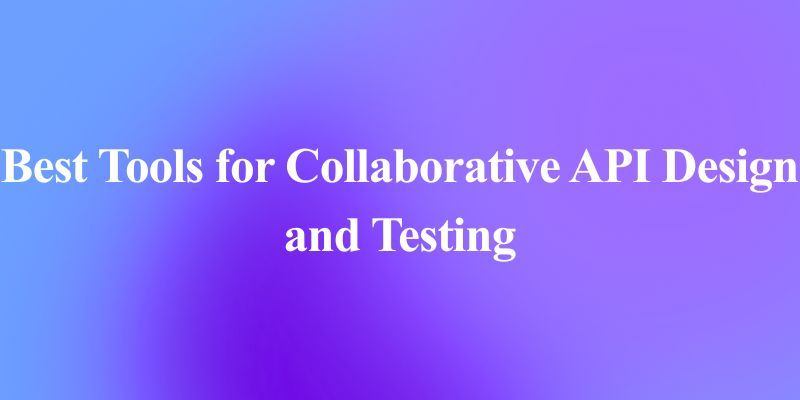Insomnia app is a popular open-source REST API client available for Mac, Windows, and Linux. It provides useful features for API testing and development like cookie management, environment variables, code generation, and authentication.

However, following the release of version 8.0, numerous bugs have surfaced, with Insomnia app data loss being the most significant issue. Personally, I lost all my data after Insomnia automatically updated. Other users have encountered problems like errors importing data and non-functional double-click renaming.
Furthermore, the offline support that was once a feature in Insomnia has been replaced by an online-only usage model. These issues in the 8.0 version have significantly impacted the user experience. In this article, we will explore the top 10 Insomnia alternatives, providing a comprehensive overview of their features, advantages, and drawbacks.
Apidog

While there are many alternative API clients, Apidog is an emerging insomnia alternative that distinguishes itself from the competition with a unique blend of features and benefits. It offers a comprehensive solution to address the challenges of insomnia, making it an attractive choice for those seeking a more effective API tool.
Apidog stands out as the premier all-in-one API solution. With Apidog at your disposal, you gain the ability to seamlessly enhance your API development process. It not only simplifies the design and debugging of APIs but also automates the generation of documentation, mock data, and tests, resulting in a significantly more efficient and productive development workflow.
The Key Features of Apidog:
- User-Friendly Interface: Apidog prides itself on an intuitive and user-friendly interface, ensuring that developers of all skill levels can efficiently work with APIs.
- API Debugging: Apidog's "Debug Mode" is a handy tool for backend development, enabling direct API debugging without prior documentation. This mode seamlessly syncs with "Design Mode" for flexible workflow.
- Automated Testing: Apidog streamlines the testing process by automatically generating tests, validating responses, and aiding in continuous integration, thereby automating tasks and ensuring the synchronization of API definitions.
- API Documentation: Apidog effortlessly generates visually appealing API documentation, with the added benefit of supporting online sharing. This makes it easy to share your API documentation with partners, clients, and other stakeholders, promoting a more collaborative development ecosystem.
- Mocking Data: Apidog eases the testing process by creating mock data.
- Strong Compatibility: Apidog offers robust compatibility with popular tools like Postman and Swagger, allowing for seamless one-click imports.
Apidog provides a free version with no time restrictions, granting full access to all the features of the professional version at no charge. As for pricing, Apidog offers flexible options to cater to your team management needs.
Postman
Postman is an API client similar to Insomnia app, providing features for API testing, and more. Compared to Insomnia, Postman offers additional capabilities like monitoring, runbook automation, and enterprise-grade collaboration features. However, Insomnia provides a more streamlined interface for basic API testing needs. You can check it for details to know the Postman.

Pros of Postman:
- Comprehensive features: Postman offers a wide range of features for API development including testing, mocking, monitoring, documentation, and automation.
- Intuitive interface: The UI is user-friendly and easy to navigate when creating requests, viewing responses, and generating code snippets.
Cons of Postman:
- Postman Collection Limitation: Postman enforces limitations on the number of times a collection can be executed within specific time frames. These limitations may require users with multiple collections that need frequent running to consider upgrading to higher Postman plans.
- Price Increase: The Basic plan's cost has recently increased from $12 to $14, which may be a drawback for some users.
Paw
Paw is an API client for macOS only, offering similar features to Insomnia such as code generation, collections, and API documentation. Unlike the cross-platform Insomnia, Paw is restricted to the Mac operating system. However, Paw provides a native macOS design and may offer better integration for Mac users.

Here are some of the advantages and disadvantages of using Paw below, as well as you can check it for details.
Pros of Paw:
- Native macOS experience: Paw provides a polished UI designed specifically for macOS.
- Code generation: Paw can generate code snippets in over 10 programming languages.
Cons of Paw:
- Mac-only: Paw is restricted to macOS, with limited support for Windows and Linux.
- Cost: Paw is a paid tool starting at $50 for a license.
Restlet Client
Restlet Client is a Chrome extension for API testing, providing an in-browser alternative to desktop apps like Insomnia. It offers similar core features like collections and code generation. However, as a browser addon it provides quicker, more lightweight API interactions compared to Insomnia's desktop app experience.

Here are some of the advantages and disadvantages of using Restlet Client below:
Pros of Restlet Client:
- In-browser interface: As a Chrome extension, Restlet provides fast API testing directly in the browser.
- Custom workspaces: Environments can be segmented into isolated workspaces.
Cons of Restlet Client:
- Chrome-dependent: Functionality is limited to the Chrome browser.
- Steeper learning curve: The extensive features may have a more difficult learning curve.
Pricing: Free and paid tiers
Swagger UI
Unlike Insomnia's general API client capabilities, Swagger UI specifically focuses on auto-generating interactive API documentation from OpenAPI specifications, providing seamless API testing directly within the docs themselves. Here are some of its pros and cons:

Pros of Swagger UI:
- Auto-generated docs: Automatically creates interactive docs from OpenAPI specifications.
- Seamless API testing: Testing works directly within the generated documentation.
Cons of Swagger UI:
- Limited customization: Provides limited styling and branding customization options.
- OpenAPI dependence: Functionality depends heavily on OpenAPI contracts.
Pricing: Free and open source
SoapUI
As one of the oldest API testing tools, SoapUI provides testing capabilities for both SOAP and REST APIs. Compared to Insomnia's focus on modern API protocols like REST, GraphQL, and gRPC, SoapUI caters specifically to developers working with legacy SOAP interfaces. Here is a brief introduction to SoapUI.

Pros of SoapUI:
- Broad protocol support: Supports testing SOAP, REST, OpenAPI, and more.
- Automation capabilities: Allows for automated API monitoring and testing.
Cons of SoapUI:
- Steep learning curve: Can have a more difficult learning curve than modern alternatives.
- Dated interface: The UI is dated compared to more modern alternatives.
Pricing: Free and paid versions
API Fuzzer
Unlike the broad API clients like Insomnia, API Fuzzer is specifically focused on automated API testing and fuzzing. It allows auto-generating randomized test cases rather than manual scripting of requests and scenarios like Insomnia. This makes it suitable for automated testing, while Insomnia provides a fuller-featured general API toolkit.
Here are some of the pros and cons of API Fuzzer:
Pros of API Fuzzer:
- Automated testing: API Fuzzer automatically generates and runs randomized test cases to catch edge cases.
- Integration: It integrates with CI/CD pipelines for DevOps workflows.
Cons of API Fuzzer:
- Limited scope: API Fuzzer focuses specifically on automated testing unlike Insomnia's breadth of capabilities.
- Scripting required: Writing custom fuzzing scripts requires some technical expertise.
Pricing: Free and paid tiers
Katalon
Katalon is a comprehensive automation testing tool that supports web, API, mobile, and desktop applications. It offers robust API testing features similar to Insomnia, along with integrated test management and reporting capabilities. Katalon’s focus on end-to-end testing makes it a versatile choice for teams looking to automate their testing processes. Its integrated development environment (IDE) and CI/CD pipeline capabilities allow teams to manage their tests efficiently across the software development lifecycle (SDLC).
Pros of Katalon:
- Comprehensive testing capabilities: Supports various types of testing beyond just APIs, including mobile and desktop applications.
- User-friendly interface: Intuitive design that caters to both beginners and experienced testers.
- Integration options: Easily integrates with CI/CD tools like Jenkins, Azure DevOps, and JIRA, along with other testing frameworks.
- Pre-built templates: Facilitates faster test creation with pre-built templates and a large set of plugins.
Cons of Katalon:
- Resource-intensive: Can be heavy on system resources, especially for larger projects, which may affect performance.
- Limited free version: The free version has limitations compared to the paid versions, such as restricted access to advanced reporting and enterprise features.
Insomnium (Open-source)
Insomnium is a privacy-focused, open-source API testing tool that operates 100% locally, making it an excellent choice for developers who prioritize security and performance without relying on cloud services. It’s a fork of Insomnia and supports testing GraphQL, REST, WebSocket, and gRPC APIs.
Pros of Insomnium:
- Open-source and privacy-focused: Works entirely offline with no communication to external servers, ensuring data remains secure.
- Fast and lightweight: Optimized for performance with minimal resource usage, even for large-scale testing.
- Wide protocol support: Handles multiple API protocols including REST, GraphQL, and WebSocket, providing flexibility for various testing scenarios.
Cons of Insomnium:
- Limited features compared to premium tools: Although feature-rich for an open-source option, it lacks some advanced testing capabilities like CI/CD integration.
- Community support: As with most open-source projects, support depends on the community, which can be slower than dedicated customer service.
Firecamp (Open-source)
Firecamp is an open-source collaboration platform designed for API development and testing, offering multi-protocol support, including REST, GraphQL, WebSocket, and SocketIO APIs. Inspired by the developer experience in VS Code, Firecamp makes it easier to collaborate on API collections across teams without switching between multiple tools.
Pros of Firecamp:
- Collaboration-driven: Facilitates team collaboration by sharing API collections and documentation across workspaces.
- Multi-protocol support: Includes support for GraphQL, WebSocket, and SocketIO, making it versatile for various development needs.
- Unified platform: Combines testing, debugging, and documentation under one roof, reducing the need for switching tools.
Cons of Firecamp:
- Learning curve: Requires some time to explore its full potential due to the range of features available.
- Community support: Being an open-source project, the level of support can vary and may lack the polish of commercial tools.
Yaade (Open-source)
Yaade is an open-source, self-hosted API testing tool that focuses on collaboration while allowing developers to manage API requests locally. Its emphasis on self-hosting ensures that all data stays within your infrastructure, offering peace of mind for privacy-sensitive projects.
Pros of Yaade:
- Self-hosted: Data never leaves your server, providing control over security and privacy.
- Multi-user support: Enables managing users and permissions, making it a great tool for teams.
- Persistent data: Even across container or server restarts, ensuring continuity and stability.
Cons of Yaade:
- Limited advanced features: While it excels in basic and privacy-focused API testing, it lacks some of the advanced functionalities seen in enterprise tools.
- Community-driven support: Like most open-source projects, support is provided by the community, which may vary in quality and response time.
RecipeUI (Open-source)
RecipeUI is an open-source API testing tool that excels in API discovery, testing, and documentation. Built on modern frameworks like NextJS and Supabase, RecipeUI offers a seamless experience for developers looking to manage and share APIs.
Pros of RecipeUI:
- Documentation-first approach: Emphasizes API documentation alongside testing, making it easy to share and reuse APIs.
- Open-source: Free to use and customize, allowing developers to adapt it to their specific workflows.
- Simple and clean design: User-friendly interface makes API testing efficient, especially for smaller teams.
Cons of RecipeUI:
- Limited integrations: It may not integrate with as many third-party tools as some commercial solutions.
- Basic feature set: Its focus on documentation means it may lack more advanced API testing and automation features.
Bruno (Open-source)
Bruno is a minimalist, open-source API client designed for developers who prefer a lightweight tool for API testing. It focuses on core functionality while supporting REST and GraphQL APIs, making it ideal for developers who want to streamline their workflow without sacrificing essential features.
Pros of Bruno:
- Lightweight and fast: Minimal resource usage allows for faster testing and debugging without any unnecessary bloat.
- Simple, clean interface: Provides an easy-to-use platform that focuses on core API testing features.
- Open-source: Free to use, customize, and adapt for various projects.
Cons of Bruno:
- Limited advanced features: While suitable for basic testing, it lacks some advanced options, such as more complex scripting and integrations.
- Community support: Like other open-source tools, the support comes primarily from the community, which may not always be timely or comprehensive.
Advanced REST Client (ARC, Open-source)
Advanced REST Client (ARC) is an open-source tool for developers to interact with RESTful APIs quickly. It provides a simple interface to create, test, and debug HTTP requests, making it a popular choice for developers who need a lightweight yet capable tool.
Pros of Advanced REST Client:
- Open-source: Free to use, modify, and extend with community-driven support.
- Simple and fast: Designed for quick testing with minimal resource usage.
- Cross-platform: Available on Windows, Mac, and Linux.
Cons of Advanced REST Client:
- Limited features: While it is good for basic API testing, it lacks the more advanced features seen in enterprise tools.
- Basic documentation: Lacks comprehensive documentation, which can make troubleshooting challenging for new users.
Apicurio Studio (Open-source)
Apicurio Studio is an open-source API editor like Insomnia, focused specifically on OpenAPI document design and API mocking. It offers automated API testing like Insomnia but lacks extensive features for request editing, visualizing responses, etc. provided by Insomnia's graphical interface.
Here are some of the advantages and disadvantages of Apicurio Studio:
Pros of Apicurio Studio:
- Open source: Apicurio is completely free and open-source.
- Automated testing: Tests can be auto-generated from OpenAPI contracts.
Cons of Apicurio Studio:
- Limited features: It lacks some robust capabilities of paid alternatives like monitoring and mocking.
- Steep learning curve: The tool may require an adjustment period, especially for less technical users.
Pricing: Free and open source
Hoppscotch (Open-source)
Like Insomnia, Hoppscotch is an open-source API toolkit providing features like code generation and API testing. Compared to Insomnia, Hoppscotch offers a visual drag-and-drop interface for request chaining but has less robust collaboration tools.
Here are some of the advantages and disadvantages of using Hoppscotch below, as well as you can check it for detail.
Pros of Hoppscotch:
- Free plan available: Hoppscotch offers a fully-featured free tier making it easy to get started.
- Intuitive visual interface: Hoppscotch provides a drag and drop interface for sequencing API requests.
Cons of Hoppscotch:
- Limited collaboration features: The free plan lacks some team collaboration capabilities.
- Smaller community: As a newer tool, Hoppscotch has a smaller user base and community support.
Pricing: Free and paid plans
Postwoman (Open-source)
Postwoman offers a simplified open-source API client compared to Insomnia, focused on ease of use and quick interactions. It provides a stripped down set of core features like request editing and code generation. Insomnia provides more advanced capabilities but a higher learning curve; Postwoman lowers barriers for entry.
Here are some of the pros and cons of Postwoman:
Pros of Postwoman:
- Ease of use: Postwoman has an intuitive interface requiring minimal setup.
- Cross-device syncing: Workflows are synced across devices automatically.
Cons of Postwoman:
- Limited capabilities: Postwoman offers a lightweight feature set compared to Insomnia.
- New project: As a newer project, long-term support is unproven.
Pricing: Free and open source
FAQs of Insomnia App Alternatives
What is the alternative to Insomnia API testing?
Some alternatives to Insomnia for API testing include Apidog, Postman, and Paw.
Is there a free version of Insomnia?
Yes, Insomnia offers a free version that provides basic API testing and management capabilities.
What is the difference between Postman and Insomnia?
Postman and Insomnia are both API testing tools, but they have differences in terms of user interface, features, and pricing. Postman is known for its user-friendly interface and collaboration features, while Insomnia is preferred by developers for its simplicity and open-source nature.

What is the difference between SoapUI and Insomnia?
SoapUI is primarily designed for testing SOAP-based web services, whereas Insomnia is focused on REST API testing. They differ in their protocol support and the types of APIs they are best suited for.




